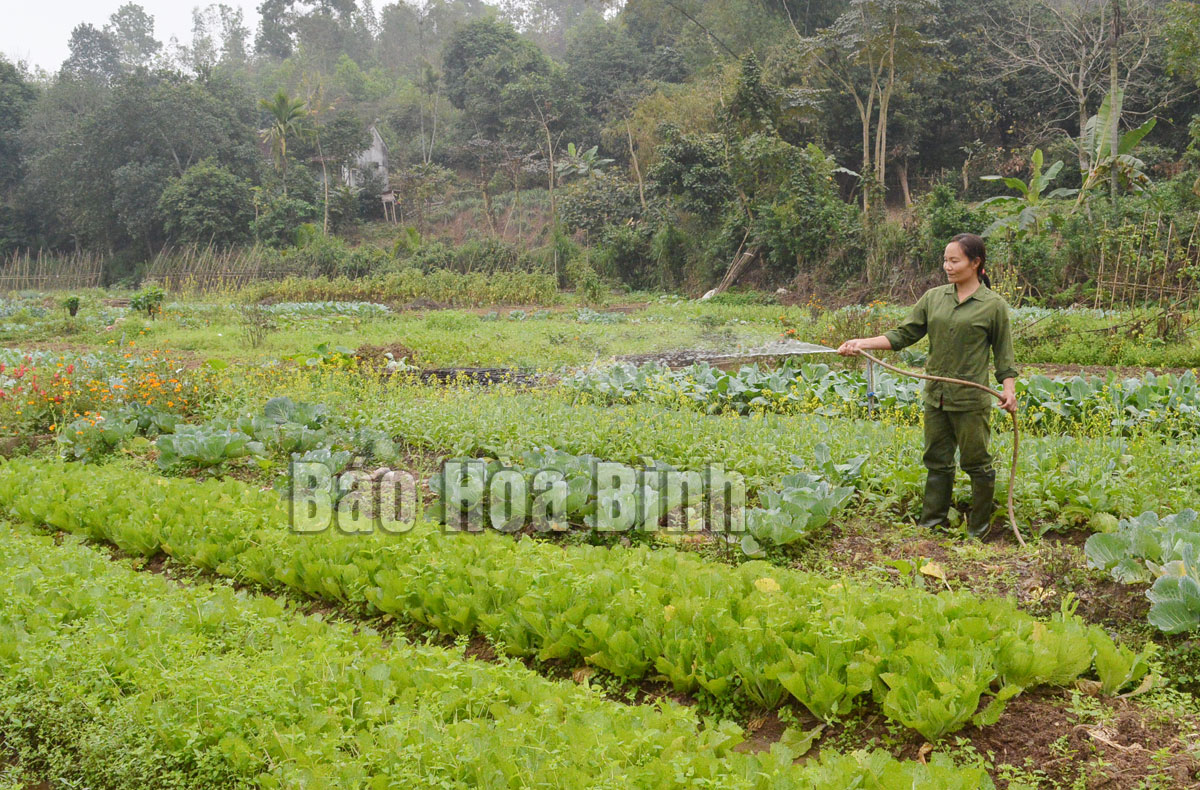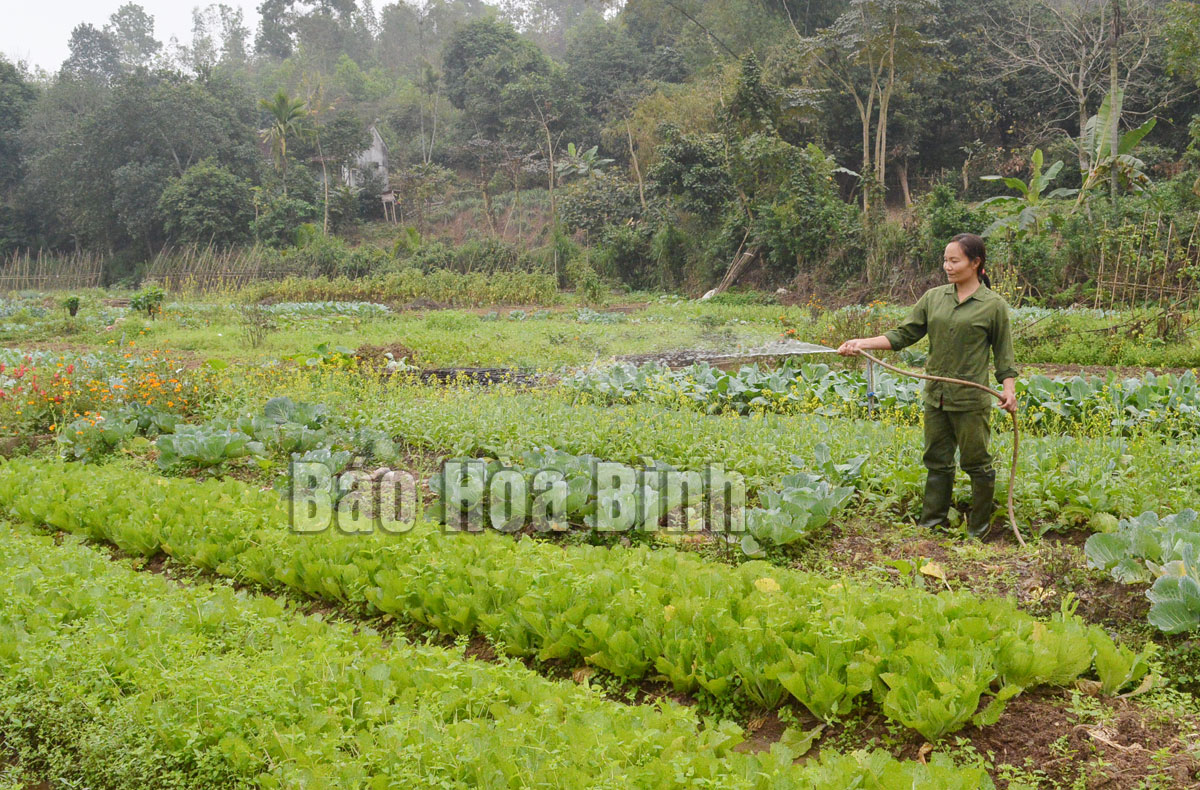
(HBO) – Hoa Binh has weather and soil conditions suitable for the growth and development of various specialty crops and livestock like citrus fruits, purple sugarcane, Shan Tuyet tea, and vegetables. Many local production areas have clean land and water sources that are suitable for the cultivation of organic crops.

An organic agricultural products cooperative in Mong hamlet, Luong Son town,
produces vegetables according to organic standards, providing safe products for
consumers.
For years, Hoa Binh has paid attention to the organic agricultural production.
The provincial People's Committee has approved a scheme to develop organic
agriculture until 2025, with an orientation to 2030. Planning and schemes have
also been launched for the development of key crop production, and an analysis
implemented to get insight into local conditions to identify suitable organic
production areas in the province.
Hoa Binh is now home to 12 organic-certificated facilities in farming and
husbandry. The province is yet to have similar firms operating in the fisheries
sector.
The local areas meeting Vietnam’s organic standard and certificated by the PGS
(Participatory Guarantee System) increased from 9.8 ha in 2018 to 66.3 ha in
2020. A number of typical local production firms can be named: the organic
vegetable group of Luong Son district, the Hoa Binh organic agriculture
company, and the Linh Dung organic farm
After 5 years of implementing its agricultural restructuring project towards
increasing value added and sustainable development, Hoa Binh’s annual
agro-forestry-fisheries growth rate reached 4.1 percent during 2016-2020. The
province has identified its key and prioritised groups of products, including
citrus fruit (oranges, grapefruits); fresh cane; high quality rice and organic
rice; medical herbs; vegetables; cattle (buffalo, cow, pig, goat); poultry
(chicken, duck); and Da river fish.
In the coming time, it will continue to sustain the existing organic crop areas
and expand new ones meeting the current organic standards.
V.H
According to data from the Hoa Binh Provincial Party Committee, the industrial production index for the first six months of 2025 is estimated to have increased by 20% compared to the same period last year. This marks the highest year-on-year growth rate for this period since 2020.
In the first six months of 2025, Hoa Binh province’s export turnover was estimated at 1.145 billion USD, marking an 18.11% increase compared to the same period in 2024. Import turnover was estimated at $ 804 million, a 17.15% increase, which helped the province maintain a positive trade balance.
The lives of the ethnic minority farmers in Tan Lac district have gradually improved thanks to the new directions in agricultural production. This is a testament to the collective strength fostered through the professional associations and groups implemented by various levels of the district’s Farmers’ Union.
With the motto the "product quality comes first,” after nearly one year of establishment and operation, Muong village’s Clean Food Agricultural and Commercial Cooperative, located in Cau Hamlet, Hung Son Commune (Kim Boi district), has launched reputable, high-quality agricultural products to the market that are well-received by consumers. The products such as Muong village’s pork sausage, salt-cured chicken, and salt-cured pork hocks have gradually carved out a place in the market and they are on the path to obtaining the OCOP certification.
In the past, the phrase "bumper harvest, rock-bottom prices" was a familiar refrain for Vietnamese farmers engaged in fragmented, small-scale agriculture. But today, a new spirit is emerging across rural areas of Hoa Binh province - one of collaboration, organisation, and collective economic models that provide a stable foundation for production.
Maintaining growing area codes and packing facility codes in accordance with regulations is a mandatory requirement for agricultural products to be eligible for export. Recently, the Department of Agriculture and Environment of Hoa Binh province has intensified technical supervision of designated farming areas and packing facilities to safeguard the "green passport" that enables its products to access international markets.



